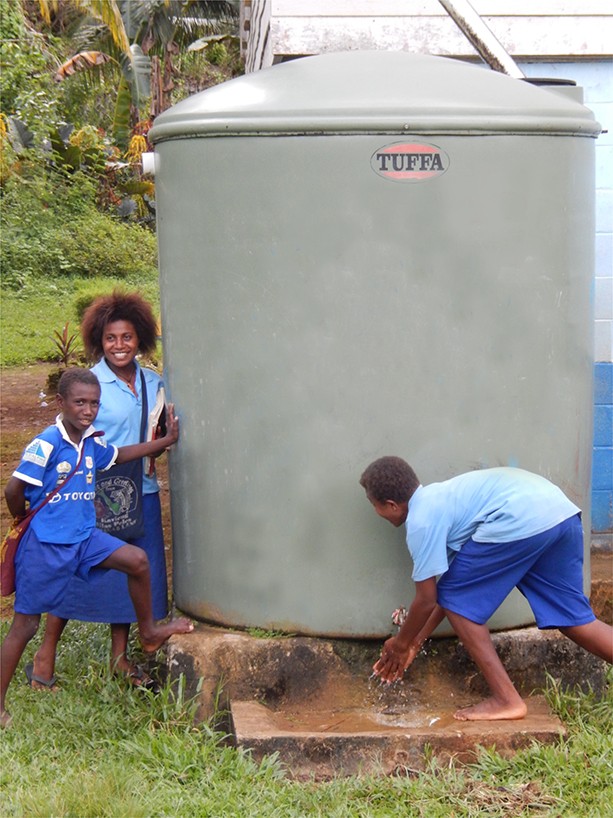
With some areas only 15 feet above sea level and an estimated 50 percent of the population living within one mile of the coastline, the Pacific Island nations are among the most vulnerable in the world to the adverse effects of climate change. The region’s economy depends on tourism, fisheries, forestry and agriculture, all of which are highly exposed and sensitive to sea level rise, changing ocean temperatures and acidity, increasing air temperatures, and shifting rainfall and storm patterns.
The U.S. Government has made the Pacific a strategic focus by expanding climate change-related assistance to the region. To assist the Pacific Island nations, USAID supports activities that accelerate their transition to low emission development and increase their resilience to the impacts of climate change.
ACTIVITIES
- USAID is building the resilience of vulnerable coastal communities to withstand more intense and frequent weather events and ecosystem degradation in the short-term, and sea level rise in the long-term. This includes rehabilitating community infrastructure; enhancing community engagement for disaster prevention and preparation; and integrating climate-resilient policies into land use planning and building codes.
- USAID provides grants to civil society organizations to assist communities to adapt to the impacts of climate and improve livelihood development.
- USAID rehabilitates degraded mangrove areas and improves management of forest ecosystems in Papua New Guinea, Vanuatu, and Solomon Islands. USAID trains communities in forest management and assists local universities and institutions conduct carbon monitoring and reporting.
- USAID is strengthening a cadre of professionals to design, install, operate, and maintain solar photovoltaic energy equipment for sustainable, renewable energy.
- USAID is working with Peace Corps volunteers to mobilize rural communities and disseminate information about disaster risk reduction.
- USAID is strengthening food security by introducing Geographic Information System land use, forestry, and soil-mapping techniques and by implementing innovative management approaches to increase the climate resilience of food production systems.
- USAID is improving the resilience of water resources by increasing island communities’ ability to harvest and store rainwater and improve groundwells.
- Jointly funded with Germany, USAID is implementing climate change adaptation measures in eight communities of Choiseul province, Solomon Islands. The experiences gained in coordinating climate change implementation amongst agencies and development partners will be replicated in other regions of the Pacific.
- Jointly funded with New Zealand, USAID is working in partnership with government agencies and communities in Kiribati to improve the government’s ability to manage collection, recycling and solid disposal programs.







Comment
Make a general inquiry or suggest an improvement.